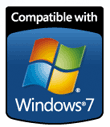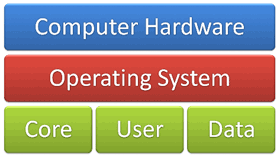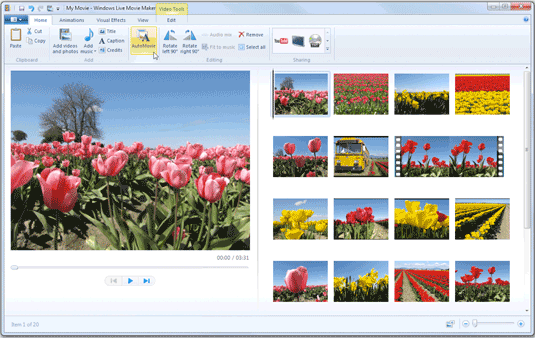 Microsoft blogged today about the compatibility logo program for hardware and software devices that will work with Windows 7. It’s in sync with Windows 7’s overall spirit of simplicity: There’s just one logo (“Compatible with Windows 7”) vs. the two that Microsoft came up with for Windows Vista. (“Works with Windows Vista” indicated basic compatibility; “Certified for Windows Vista” was more rigorous.)
Microsoft blogged today about the compatibility logo program for hardware and software devices that will work with Windows 7. It’s in sync with Windows 7’s overall spirit of simplicity: There’s just one logo (“Compatible with Windows 7”) vs. the two that Microsoft came up with for Windows Vista. (“Works with Windows Vista” indicated basic compatibility; “Certified for Windows Vista” was more rigorous.)
Simplicity is good–especially since nobody who doesn’t work at Microsoft and who isn’t involved in manufacturing hardware or developing software really knows the specifics of what the logo indicates. As the “Compatible” in “Compatible with Windows Vista” indicates, the emphasis this time around seems to be on ensuring that products will function reliably with all versions of the OS, including the 64-bit ones. It’s not claiming that a product is a shining example-the equivalent Windows XP logo had the loftier-sounding name of”Designed for Windows XP”–but just that it works.
But I’m sorry that Microsoft didn’t institute one additional requirement for hardware products: mandating that they support Device Stage, the OS’s new system for putting a bunch of features related to a peripheral in one place, such as a camera’s charge level, storage capacity, and tools for importing and transferring photos.

 October 22nd may be
October 22nd may be  TechRepublic’s Jason Hiner has a post up with the provocative title “
TechRepublic’s Jason Hiner has a post up with the provocative title “ Like 5Words?
Like 5Words?  I dedicated my book–
I dedicated my book–
 Maybe Windows XP users, on the whole, aren’t hidebound old luddites who stick with an eight-year-old operating system because they fear change. Maybe most of them are smart people who continue to use Windows XP because it does what they need it to do–but who will upgrade to a new version of Windows when they’re impressed by one and are confident it’s ready for prime time.
Maybe Windows XP users, on the whole, aren’t hidebound old luddites who stick with an eight-year-old operating system because they fear change. Maybe most of them are smart people who continue to use Windows XP because it does what they need it to do–but who will upgrade to a new version of Windows when they’re impressed by one and are confident it’s ready for prime time.